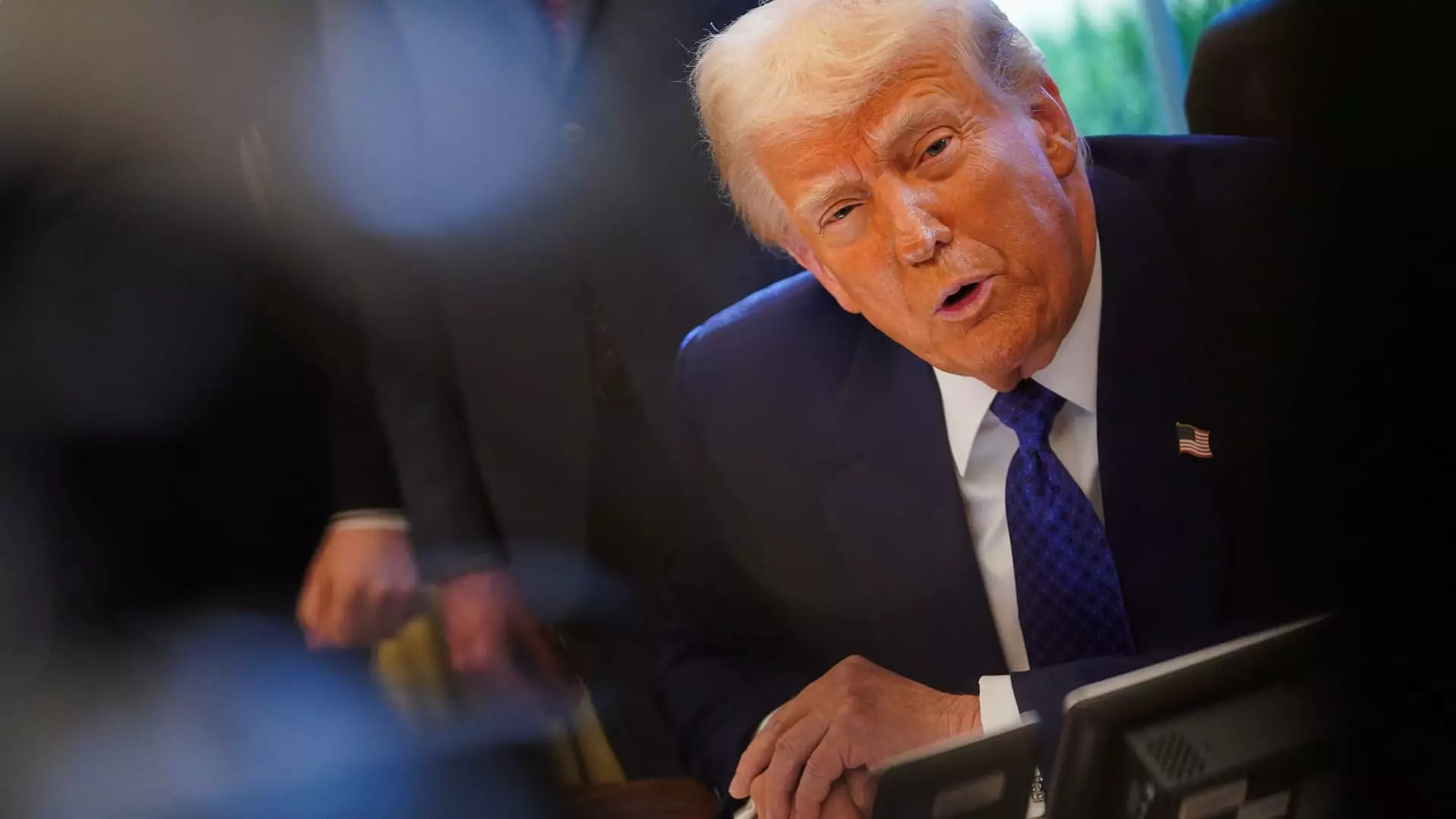The ongoing conflict between Ukraine and Russia has led to not only significant geopolitical tensions but also unique negotiations surrounding natural resources essential for technology. Recently, reports have emerged about proposals involving the United States’ potential ownership of a substantial portion of Ukraine’s rare earth minerals. This intricate scenario raises profound questions about sovereignty, international relations, and resource management in a war-torn nation.
According to multiple U.S. officials, the Trump administration has floated the idea of the United States acquiring a 50% stake in Ukraine’s rare earth mineral resources. This proposal is not merely a straightforward acquisition; instead, it has been framed as a mechanism for Ukraine to settle its debts for the extensive military and logistical support provided by the U.S. since the war began in February 2022. This novel approach could fundamentally alter the financial landscape for Ukraine while simultaneously granting the U.S. a significant foothold in resource management within Eastern Europe.
Treasury Secretary Scott Bessent reportedly presented this proposal during a meeting with Ukrainian President Volodymyr Zelenskyy in Kyiv. However, Zelenskyy opted not to sign the draft agreement, indicating the need for further examination and consultation with his advisors. This response underscores the complexity and delicacy of Ukraine’s position, wherein any agreement must carefully consider both economic and national security implications.
Rare earth minerals are critical in manufacturing various advanced technology products, from smartphones to military hardware. Their strategic importance cannot be overstated, especially in a world increasingly reliant on technology and facing tensions over resource dominance. President Trump expressed an intention for the U.S. to benefit from approximately $500 billion worth of these minerals, a sum that reflects the immense value of energy resources in contemporary economic contexts.
However, such a proposal raises ethical and strategic issues. Granting the U.S. ownership over a significant portion of Ukraine’s natural resources might be perceived as a form of neo-colonialism by both the global community and the Ukrainian populace. Protecting Ukraine’s sovereignty while allowing for significant foreign influence is a precarious balancing act that the Ukrainian leadership must navigate carefully.
During his speech at a global security conference, President Zelenskyy highlighted the precarious nature of Ukraine’s situation without U.S. support. He conveyed the gravity of the proposals being discussed, calling them a memorandum rather than a security pact, which indicates a level of caution in his administration’s approach to potential agreements. Zelenskyy’s insistence on ensuring that his legal team reviews the proposals signifies his commitment to approaching negotiations thoughtfully and strategically.
This careful navigation is not without its challenges. While the Ukrainian leadership understands the critical nature of U.S. military and financial support, there exists a palpable tension in how openly they can engage in negotiations involving such sensitive resources. The stakes are high, and any misstep could affect not just Ukraine’s future but also the geopolitical balance in Eastern Europe.
The potential deployment of U.S. troops to Ukraine, mentioned in discussions by Defense Secretary Pete Hegseth, brings additional layers of complexity to the conversation. While he asserted that troops would not be dispatched as part of a security guarantee, U.S. officials have indicated that troop presence might be reconsidered if negotiations with Russia fail to yield positive outcomes. This shift in military strategy could transform the warfare dynamics not only in Ukraine but across the region.
Trump’s historical skepticism about the extent of American financial support for Ukraine persists even amidst these pressing negotiations. His past remarks characterize Ukrainian President Zelenskyy as an adept negotiator, suggesting that the U.S. may sometimes feel at a disadvantage in securing favorable terms for its positions.
The evolving discussions surrounding the U.S. ownership of Ukraine’s rare earth minerals reflect broader themes of international diplomacy, economic dependency, and the complex interplay between military support and resource management. Zelenskyy’s administration faces the herculean task of securing essential aid while protecting Ukrainian sovereignty and ensuring the nation’s long-term sustainability in a tumultuous geopolitical landscape. These negotiations will not only determine myriad future relations but will also have lasting ramifications on the fabric of international politics, diplomacy, and strategic resource management.

Leave a Reply